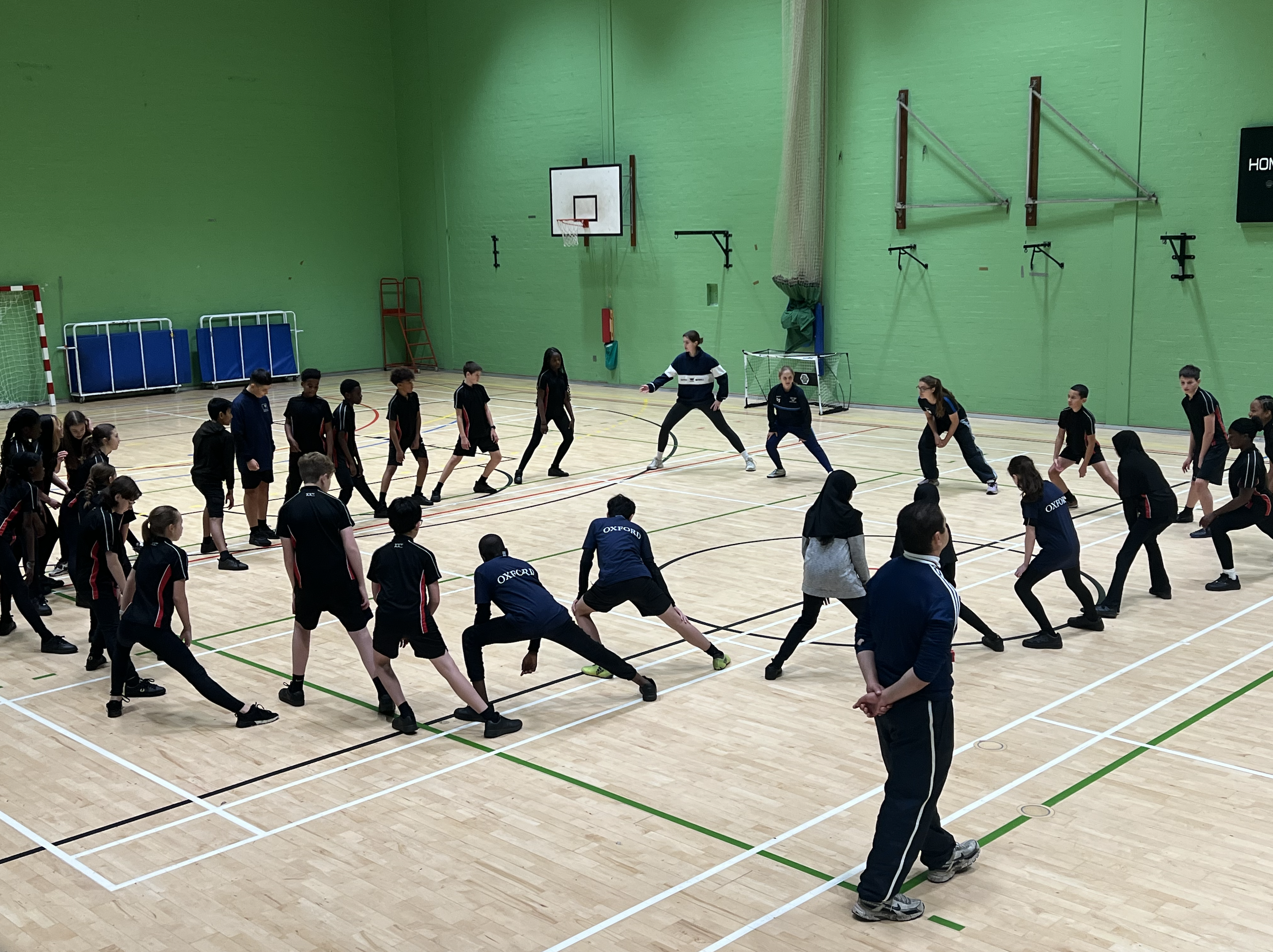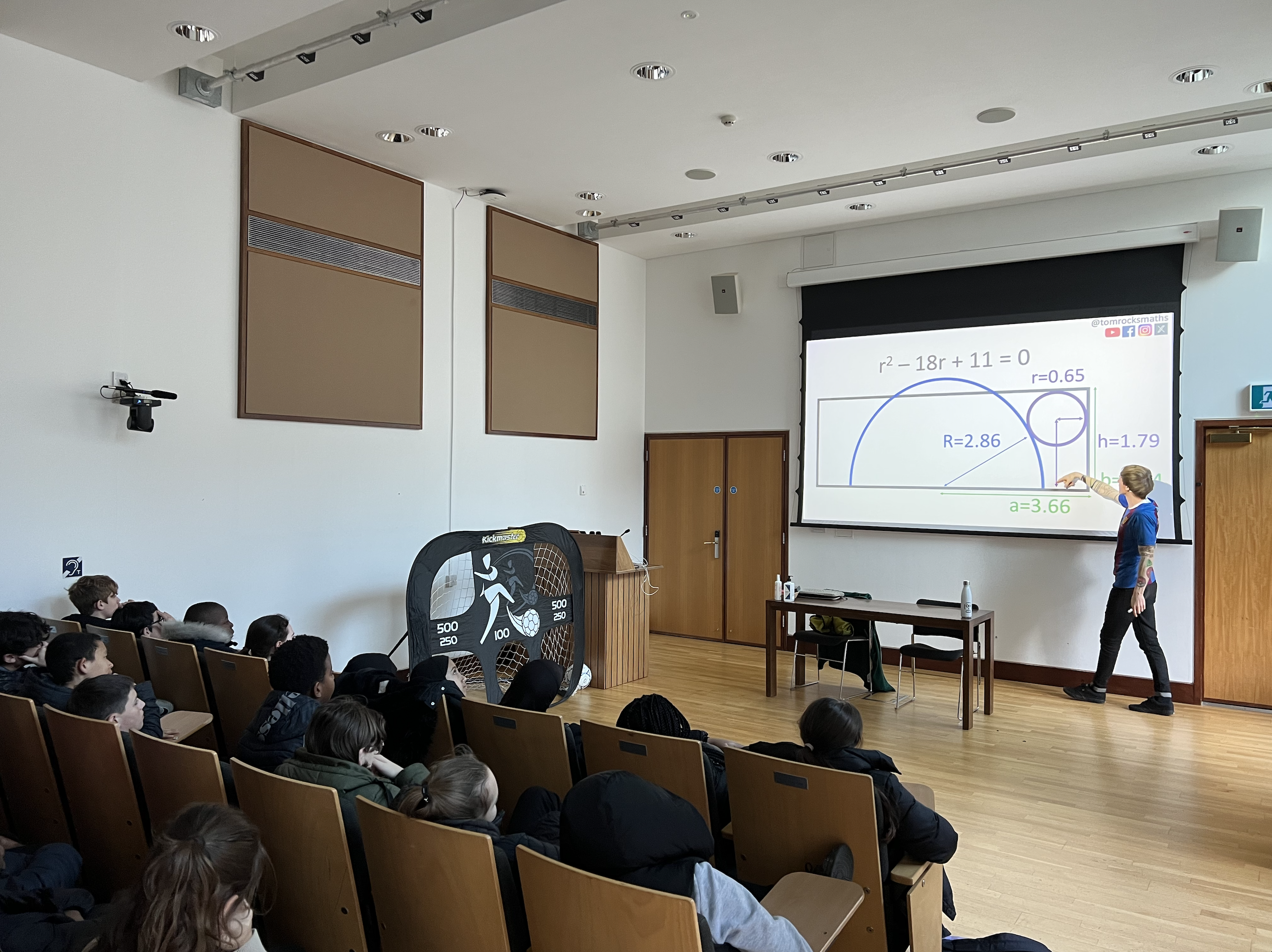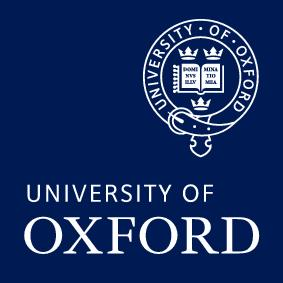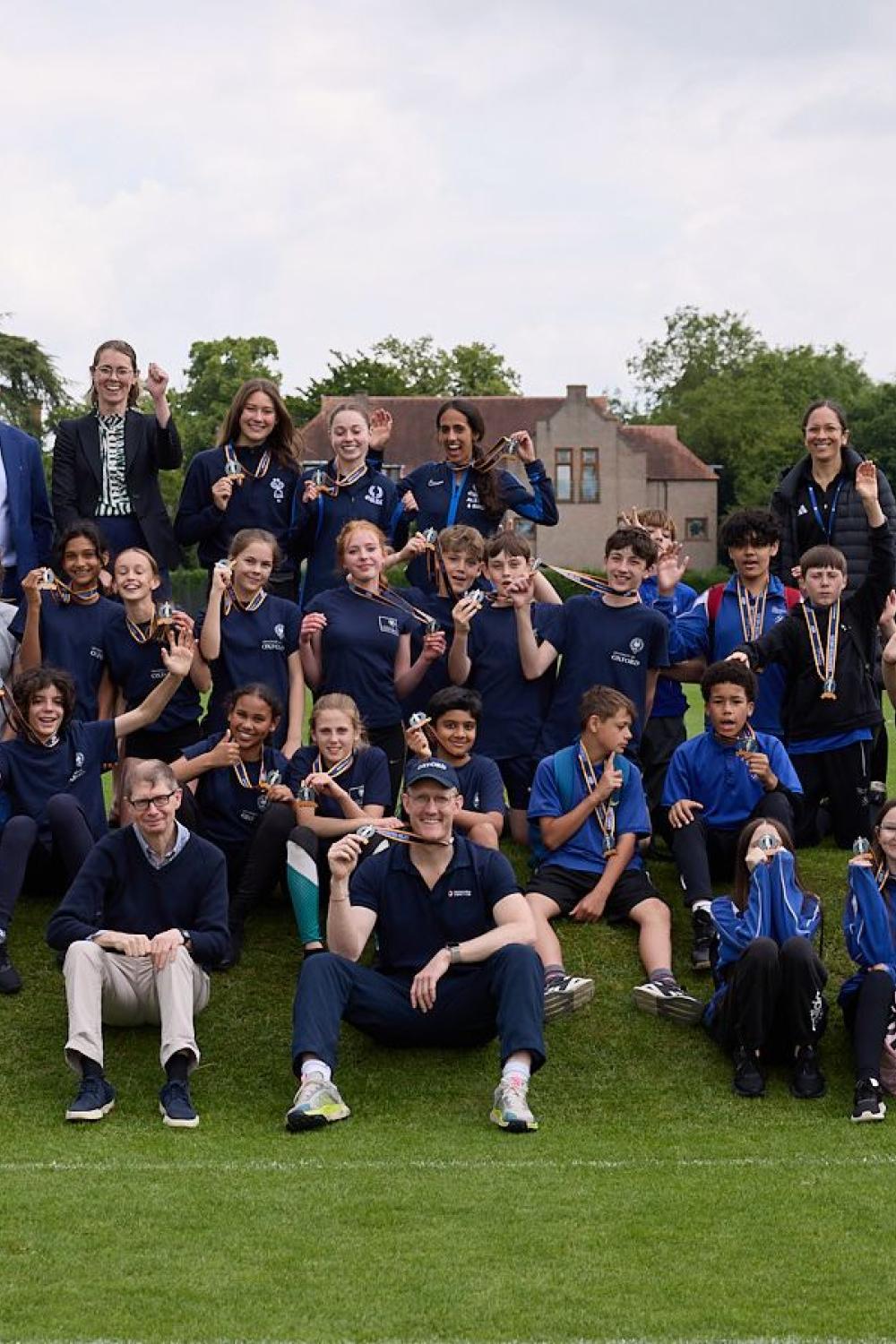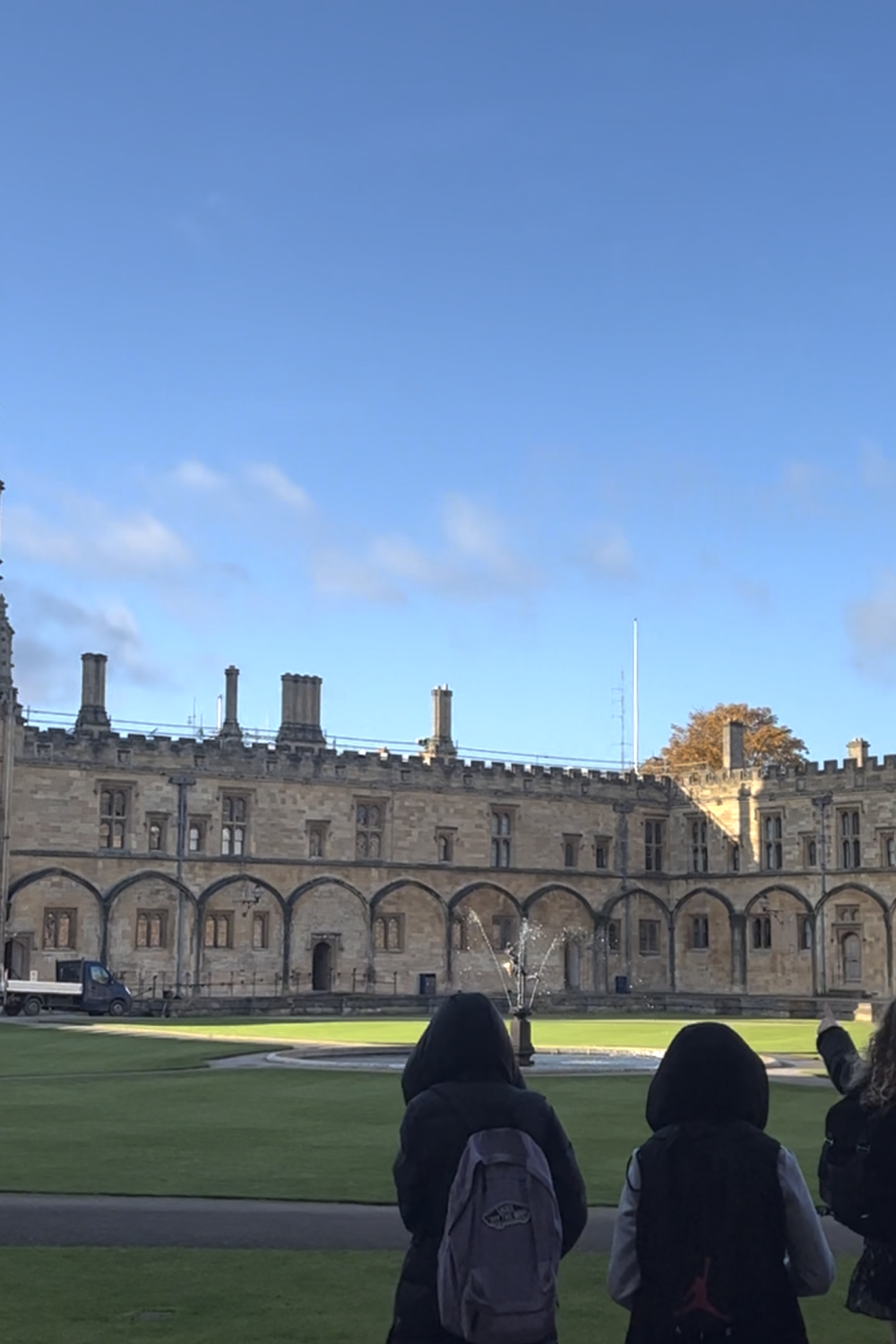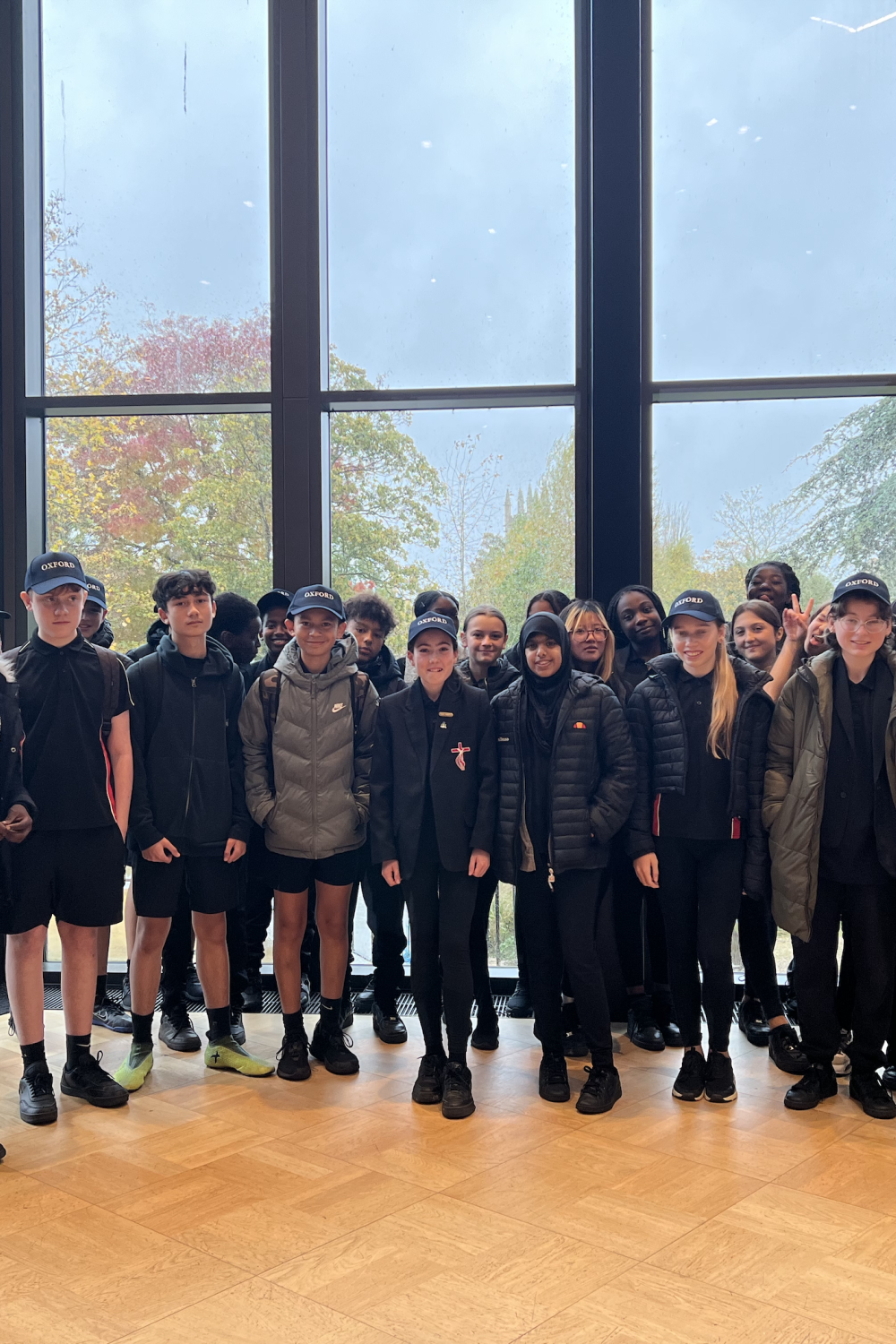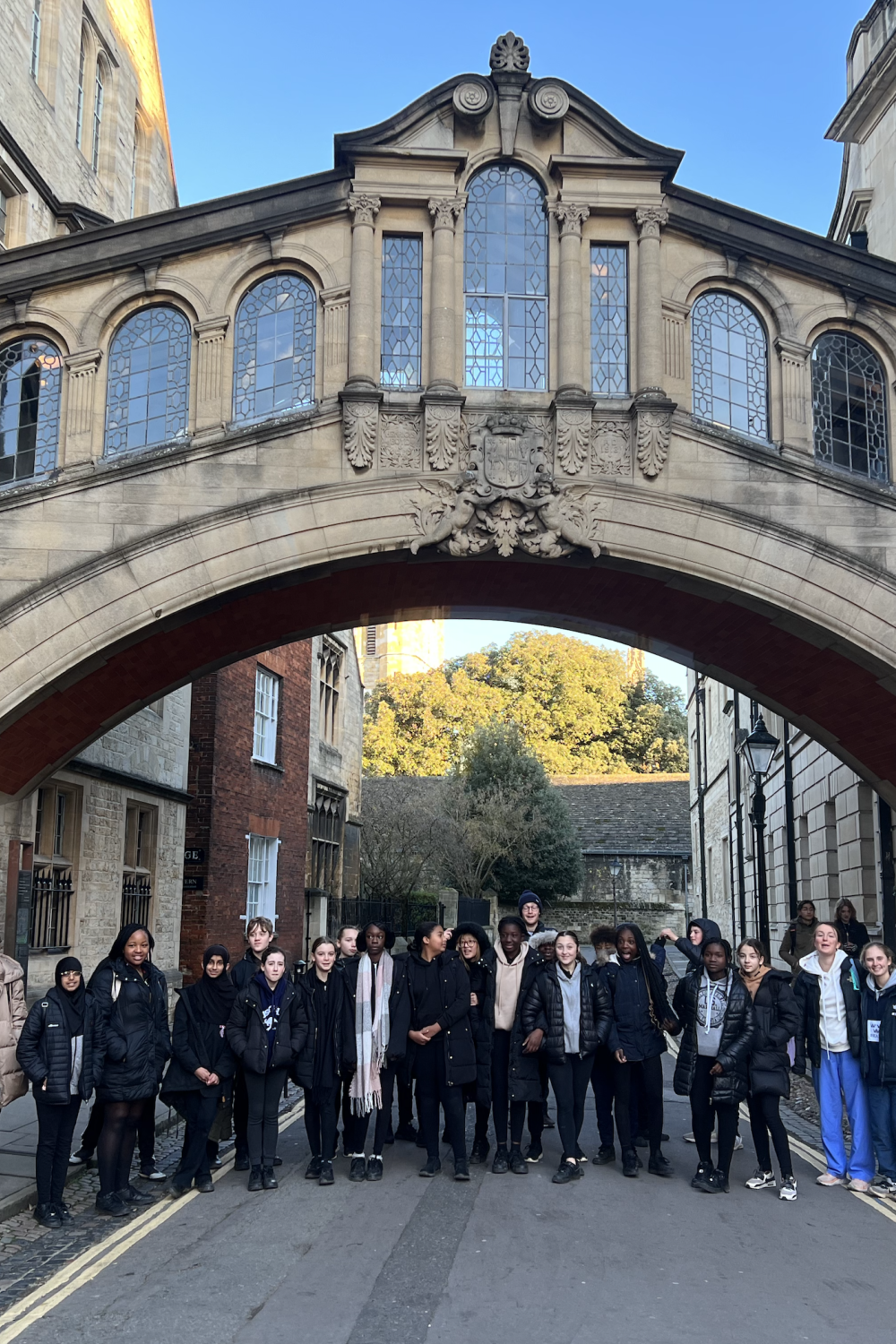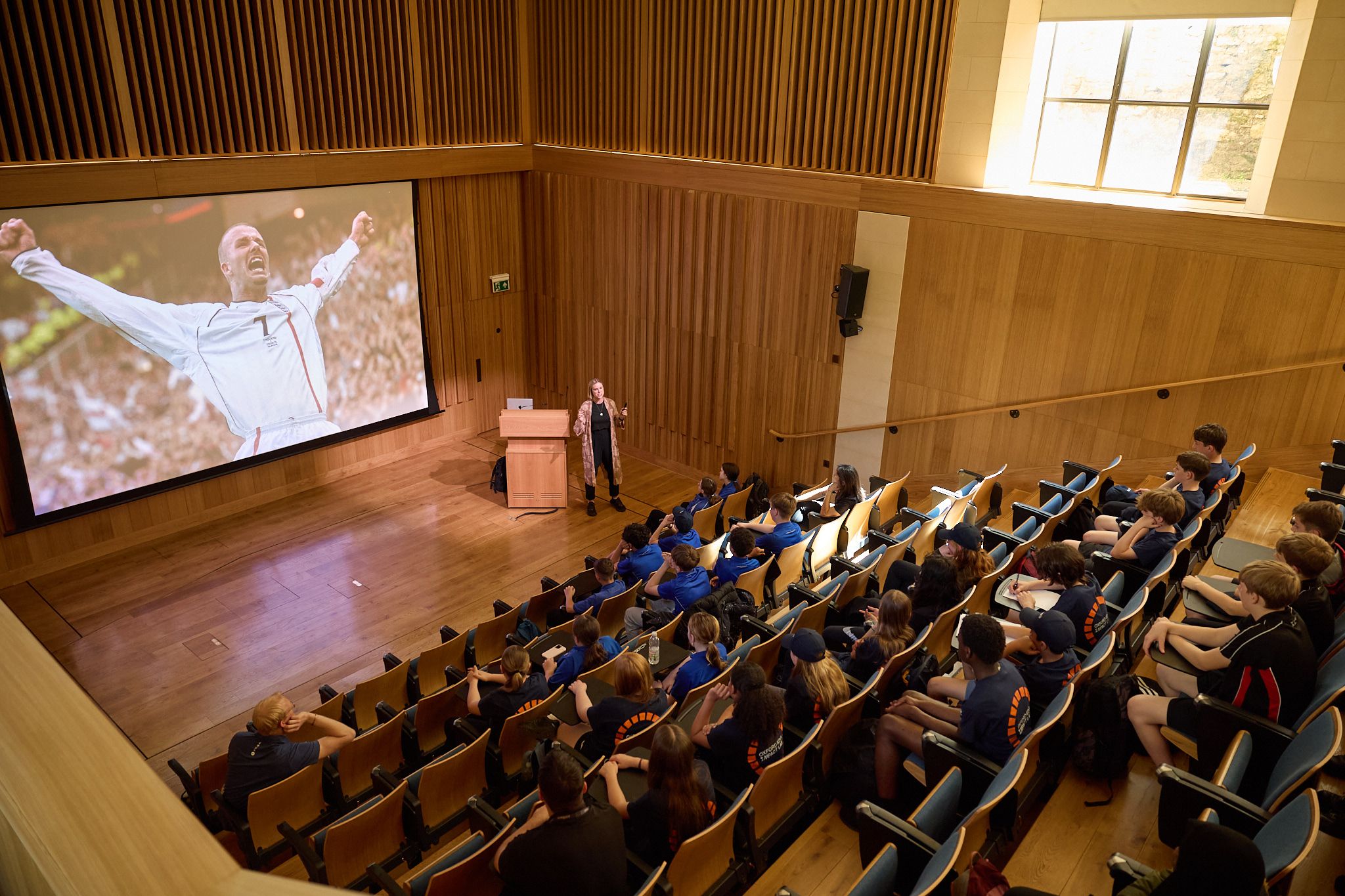From the Olympics to Tackling Inequality through the Power of Sport
With the Paris Olympics just behind us and the Paralympics about to begin, we take a look at our own “in-house” Olympian, Senior Programme Manager Oliver “Ollie” Cook.
Ollie competed in rowing at the postponed Tokyo Olympics in 2021 for Great Britain. For him, the Olympics marked the culmination of over nine years of full-time training with the GB Olympic Team. In a highly intense final, Ollie and his crew finished heartbreakingly in fourth place, just outside of the medals.
Transition from the Olympics to Academic Start-Up
After the Games, Ollie retired from full-time competitive rowing (though he did go on to win the Coastal World Championships a year later!). In September 2021, SDG Impact Lab co-founders Professor Alexander Betts and Dr Edward Brooks met with Ollie for a coffee and invited him to join them and the previous Lab COO Merry Whitaker in creating and building what was then just the SDG Impact Lab on paper.
Reflecting on that time, Ollie said: “I had just come out of living and breathing as an Olympic athlete for almost a decade, but I was so excited to jump into something new that felt like it had a similar sense of mission and purpose. Creating something that hadn’t been done before, while dealing with the ambiguity and complexity after such a structured existence, was definitely challenging but hugely rewarding.”
The SDG Impact Lab grew quickly, establishing partnerships with organisations like easyJet holidays, BMW, UN Tourism, Rosberg Philanthropies, Climeworks, Nestle, and Ocean Clean Up. While also training over a hundred graduate students and developing interdisciplinary research across fifty high-impact projects.
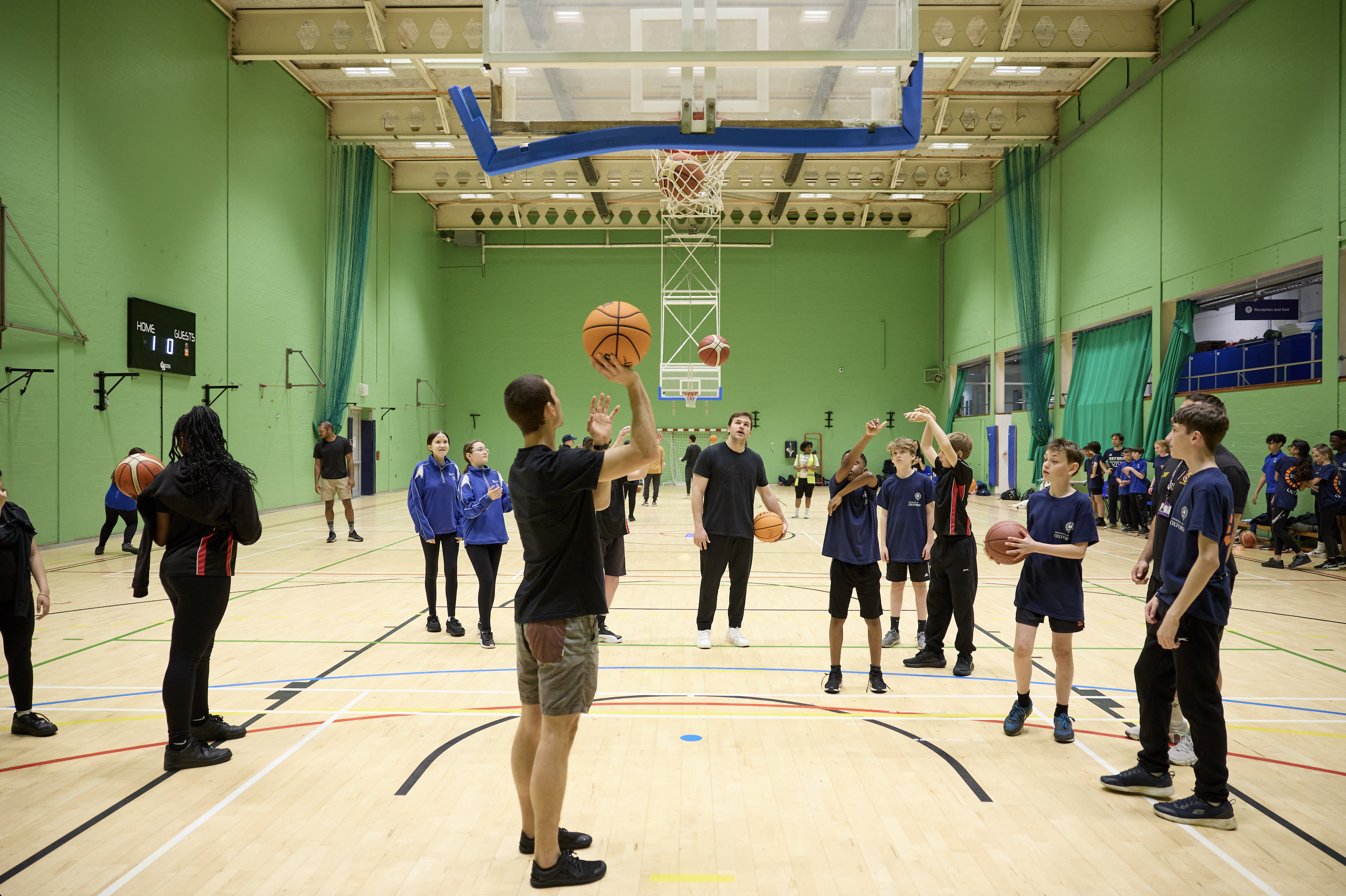
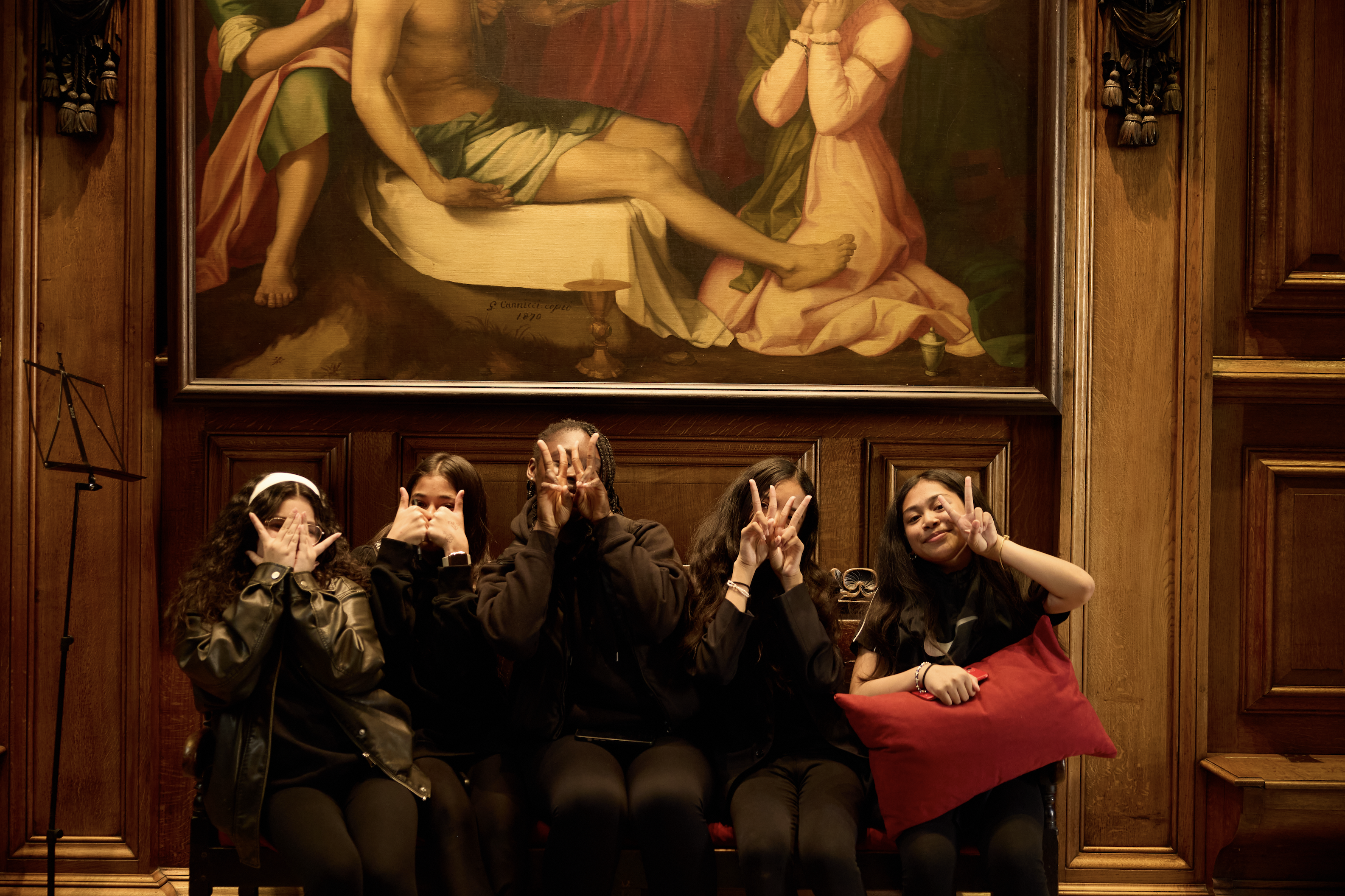
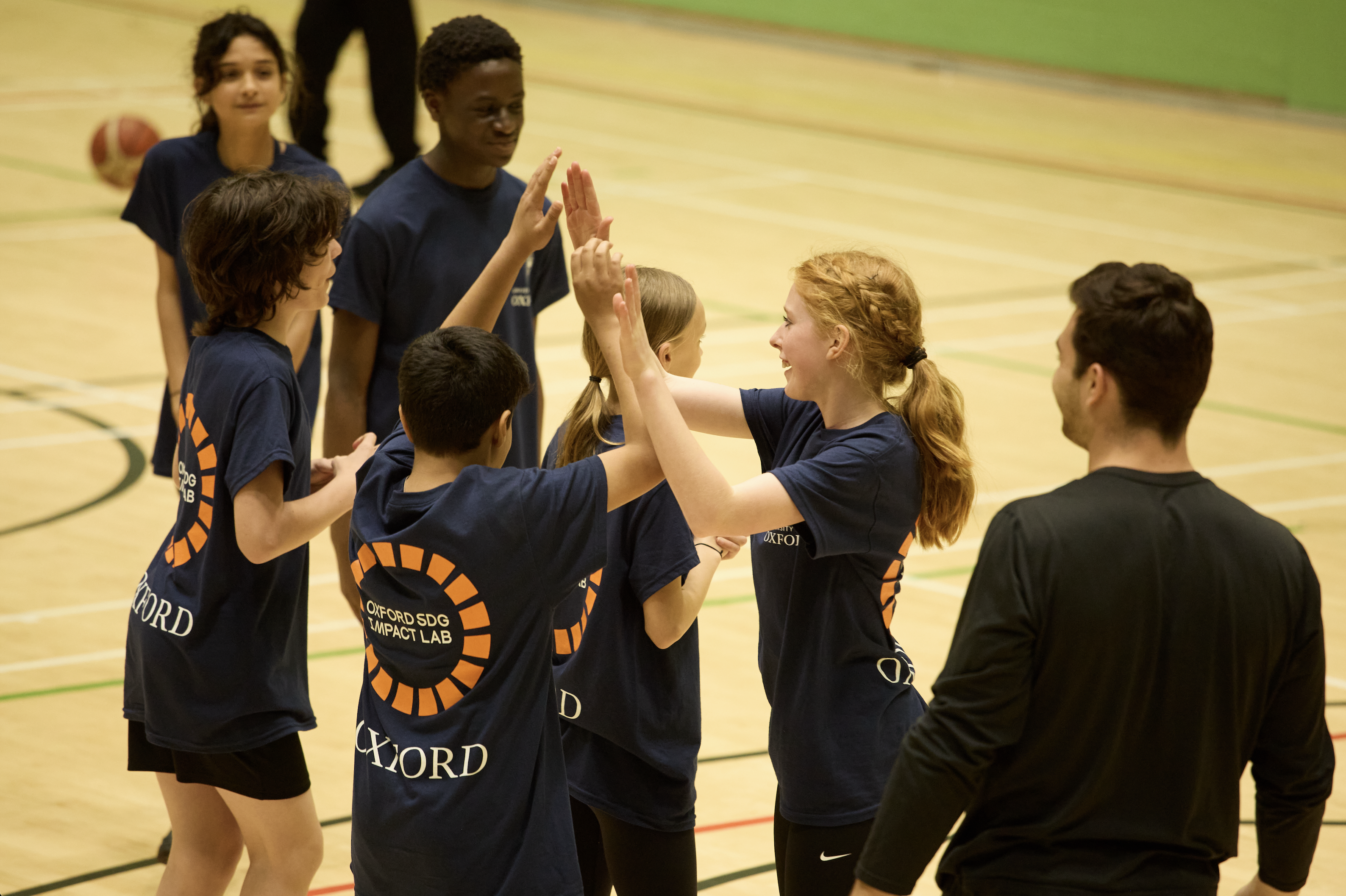
Building the Sport Leaders Programme
Throughout this time, Ollie sought to leverage his sporting experiences to see if sport could be used more proactively to advance the SDGs.
His opportunity came when the SDG Impact Lab received funding from the University’s Economic and Social Research Council (ESRC) Impact Acceleration Account. Soon-to-be Vice-Chancellor Professor Irene Tracey tasked Ollie with exploring how sport could be used to bring the University and the community in Oxford closer together.
“It was a brilliant opportunity to create something that I had been mulling over for some time,” Ollie notes. “Oxford has one of the highest levels of inequality of any city in the UK, particularly in physical health and access to facilities. At the same time, the University has fantastic resources—both physical and among the students and staff, who serve as role models and researchers. Could there be a way of bringing these two worlds closer together?”
Ollie then assembled a group of advisors from the University and the Oxford community to help shape the idea. He recalls, “We had a brilliant team of informal advisors who guided the development of the idea. We quickly honed in on the area of Oxford and the demographic we wanted to work with—schools whose catchment area is East Oxford and school-age students in year nine. The academic literature and advice we had indicated that this age is a critical time in forming identities, when many kids, especially girls, drop out of sport altogether. We also developed the idea of a programme that combined physical activity, the learning of new skills, and an educational component that built on the traditions at Oxford while fostering connection-building.”
The first programme, called Oxford Sport Leaders, was piloted with Greyfriars School in November and December of last year. The programme involved thirty year-nine students spending one day a week for six weeks at the University. Each morning, they received coaching in a different sport from University coaches and students, including basketball, RC racing, rowing, American football, football, and athletics. In the afternoons, they participated in interactive academic workshops led by University academics that connected subjects they could study at University through the lens of sport. These workshops included “Football on the Brain” with the Integrative Neuroimaging team, “Maths vs Sport” with Dr Tom Crawford, “Music & Sport” with Dr Corey Crossman, “Teamwork Makes the Dream Work” with cognitive anthropologist Dr Martha Newson and Dr Arran Davis, and “Rules of the Game” with world-leading sports barrister Michael Beloff KC.
The pilot was such a success that other schools in Oxford requested to be included in future iterations, and the University was eager to provide ongoing resources to further develop the programme.
Social Impact in Oxford
The second programme ran in May and June this year, expanding to include Greyfriars, Oxford Academy, and Oxford Spires. Ollie reflects, “It was an exciting challenge to figure out how to build on what worked well in the first programme and make it even better for the second.”
The two programmes have already led to some exciting local impacts, including the American football team developing an ongoing coaching programme with the schools, the local rowing club starting a community programme, and BMW launching a STEM-focused initiative with the schools.
In addition to these programmes, the team also ran a “PowerHouse Games” event with the inclusive sport charity Power2Inspire. The PowerHouse Games brought twelve students from the local SEN school John Watson together for a day of inclusive friendly sports alongside the original thirty students from Greyfriars School and over twenty University students, including a large contingent from the Saïd Business School.
Reflecting on the past year, Ollie says, “Looking back at what we have achieved this past year has been incredibly rewarding. I’ll long remember the feedback we received from the Headmistress of Greyfriars School, who told me how much these programmes had impacted her school. It’s a huge testament to the passion, drive, and enthusiasm of my colleagues at the SDG Impact Lab that we were able to create this programme. And this is just the start—I hope we can continue building on this momentum to bring people together and make a difference for everyone who lives in Oxford.”
Follow us
The Oxford SDG Impact Lab is hugely proud of Ollie and his work in creating the Sport Leaders programme.
Follow us for more information on how we are generating impact to advance the SDGs both locally and globally in Oxford and beyond.
